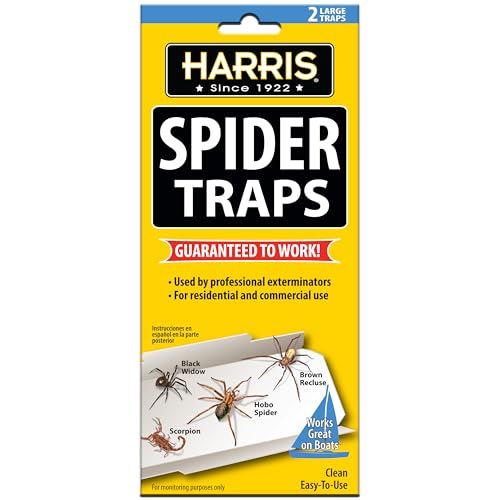Have you ever observed your feline companion hunting down a spider? You may not have given it much thought, but there is actually a lot of interesting science and behavior behind this seemingly mundane activity. In this article, we explore the fascinating relationship between house cats and spiders, delving into the predatory instincts of felines and how they can actually be beneficial for providing natural pest control. Read on to learn more about the curious interaction between these two common household creatures.

Why Do House Cats Kill Spiders? The Science Behind It All
Cats have always been known for their hunting and predatory instincts. It’s nearly impossible to stop a cat from trying to catch things they see as prey, which is why many cat owners would agree that their furry friend is a natural pest control method. However, when it comes to spiders, some people might be wondering why house cats are so determined to catch and kill them. In this section, we’ll explore the science behind that behavior.
-
Feline Behavior 101: Understanding Your Cat’s Predatory Instincts
According to veterinary behaviorist Dr. Karen Overall, cats have a natural predatory instinct that goes back thousands of years. These instincts cannot be trained out of a cat, and they can be triggered by a variety of stimuli, such as movement, sound, and even pheromones. Spiders can fall into all these categories, which is why they’re such tempting targets for cats. -
How Cat Owners Can Benefit from Their Furry Friend’s Natural Spider Control Abilities
While most people would prefer to avoid spiders in their homes, having a cat around can actually be beneficial in terms of pest control. A study conducted in 2017 found that cats are effective in reducing populations of common household pests, including spiders. They are particularly good at catching spiders that are hiding in hard-to-reach places, such as under furniture or in corners. It’s important to note, however, that some spiders can be poisonous to cats, so it’s best to keep a close eye on your feline friend if they do catch a spider. -
Arachnophobia: Can Cats Help?
For people who suffer from arachnophobia (fear of spiders), having a cat around can be a source of comfort. Not only do cats help keep the spider population under control, but they can also provide a sense of security to their human companions. Cats have an innate ability to sense danger, and they often take on a protective role in their household. This can help alleviate anxiety for those who are afraid of spiders. -
Household Pests 101: The Pest Control Benefits of Having a Cat
Spiders are just one of the many pests that can be controlled with the help of a cat. In addition to spiders, cats are effective in catching insects such as flies, moths, and roaches. By hunting and catching these pests, cats can help maintain a clean and hygienic home environment. This is particularly important for people who suffer from allergies or asthma, as household pests can aggravate these conditions. -
Cat and Spider Interaction: How to Overcome Your Feline’s Fear of Creepy Crawlies
While most cats are natural spider hunters, there are some who are afraid of spiders. This can be due to a variety of factors, such as a negative experience with a spider or an underlying health issue. If your cat is afraid of spiders, it’s important to work with them to overcome this fear. One approach is to use positive reinforcement, such as treats or praise, to encourage your cat to approach and investigate spiders. Another approach is to use a toy spider to help your cat become more comfortable with the real thing.
In conclusion, cats are natural spider killers due to their hunting and predatory instincts. While some people may find this behavior unsettling, it’s important to understand that it’s an instinctual part of a cat’s nature. However, this behavior can be beneficial for homeowners looking to keep household pests under control. With a little bit of training and positive reinforcement, even cats who are afraid of spiders can become effective pest control partners.
Feline Behavior 101: Understanding Your Cat’s Predatory Instincts
Cats have long fascinated humans with their independent, mysterious ways. It’s no secret they are skilled predators, and their hunting instincts extend to more than just birds and mice. House cats are also natural spider killers.
As obligate carnivores, cats have evolved to be efficient hunters. According to Dr. Karen Becker, a proactive and integrative wellness veterinarian, cats have a “hardwired instinct” to hunt, as it is hardwired into their DNA. Even if your feline companion has never encountered spiders before, they are capable of recognizing them as potential prey.
In the wild, cats would encounter a variety of prey, including insects like spiders. Domestic cats, on the other hand, may not have as many opportunities to act on their predatory instincts, which can lead to boredom and behavior problems. Encouraging your cat’s natural predatory instincts by providing them opportunities to hunt can help prevent unwanted behaviors and keep them mentally stimulated.
But what makes cats such effective spider killers? For one, their agility and speed. Cats are known for their quick reflexes and precise movements, making them capable of catching even the smallest insects. Additionally, cats have sharp claws and teeth, which they can use to quickly dispatch their prey.
While having a cat may not completely eradicate your spider problem, their natural hunting abilities can supplement pest control efforts in your home. Studies have shown that cats are effective at controlling both insect and rodent populations, making them useful for natural pest control.
However, it’s important to note that not all cats are eager spider hunters. Some cats may have a strong aversion to spiders or other insects, just as some humans have arachnophobia. If you notice your cat avoiding spiders or showing signs of fear, it’s best not to force them to interact with the spiders.
Understanding your cat’s predatory behavior is crucial for both their mental and physical health. By providing them with opportunities to hunt and acknowledging their innate predatory instincts, you can better understand their behavior and form a stronger bond with your feline companion.
How Cat Owners Can Benefit from Their Furry Friend’s Natural Spider Control Abilities
Cats are known to be excellent hunters and have an innate predatory instinct. This is why they tend to chase and hunt prey animals. One such prey animal that cats are commonly known to hunt are spiders. But this isn’t just a playful game for them; it’s actually beneficial for cat owners. Here’s how:
-
Natural Pest Control: Cats are effective at controlling household pests like spiders. They use their natural hunting instincts to track down and eliminate spiders and other insects from your home. In this sense, having a cat as a pet can help reduce the population of household pests.
-
Eliminates the Need for Chemicals: Since cats naturally hunt and kill spiders, this can forgo the need to use pesticides or chemicals to eliminate them. This is especially useful for people who are environmentally conscious or for those who have children or pets in the home who may be affected by harsh chemicals.
-
Cleaner and Healthier Home: By preventing spiders and other insects from inhabiting your home, cats can help maintain a cleaner space. This is because spiders tend to spin webs and leave them around the house, making it look untidy. Furthermore, some spider species can pose a health risk if they bite, so having a cat eliminate these pests can reduce the risk of spider bites.
-
Utilizing Feline Intelligence: Even if you have a cat that isn’t interested in spiders or hunting, there are ways to train them to do so. By utilizing your cat’s intelligence and predatory instincts, you can train them to hunt spiders and other insects that may be indoors. This can be especially helpful for people who live in areas with high spider populations or for those who have arachnophobia.
-
Companionship and Security: Lastly, having a cat as a feline companion can provide a sense of security. Knowing that your cat is present and actively hunting spiders and other pests can give you peace of mind and make you feel safer in your own home.
In conclusion, having a cat as a pet can provide natural spider control and help keep your home clean and healthy. Whether your cat is a natural hunter or requires some training, their predatory instincts can be harnessed to help you control household pests without the use of harsh chemicals.
Arachnophobia: Can Cats Help?
Arachnophobia is a common fear of spiders that affects many people worldwide. While spiders can be beneficial to have around the house for pest control, their appearance and behavior can cause alarm for some. Luckily, many cat owners have discovered that their feline friends can offer a solution to this problem.
House cats’ predatory instincts make them skilled hunters and natural spider exterminators. Cats have evolved over time to hunt small prey, and this instinct has not diminished even as they have become domesticated animals. Moreover, cats’ natural curiosity drives them to investigate and explore their environment, which means they often notice spiders, even if humans don’t.
In addition to being natural spider hunters, cats can also provide emotional support to arachnophobes. The mere presence of a cat in the room can sometimes be enough to calm someone with a fear of spiders. This is because cat owners tend to feel a sense of comfort and security when their furry friend is around, and having a cat that is not intimidated by spiders can further reassure them.
While cats are not trained to provide specific arachnophobia support, their presence and behavior can still have a calming effect on those who struggle with a fear of spiders. As such, cat owners should appreciate their cats’ abilities to offer a form of emotional support when it comes to spiders and other household pests.
In conclusion, house cats can be a beneficial addition to any spider-phobic household. While cats are not a guaranteed solution for spider infestations, their natural hunting instincts and calming presence can help control spider populations and reduce the emotional stress that comes with a fear of these eight-legged creatures. In the next section, we will explore the various types of household pests that cats can help control.
Household Pests 101: The Pest Control Benefits of Having a Cat
If you’re a homeowner, it’s likely that you’ve dealt with your fair share of common household pests. From ants to roaches to spiders, it can be frustrating trying to keep them from invading your space. But did you know that your furry feline friend can actually be a valuable asset in pest control? Let’s take a closer look at the pest control benefits of having a cat in your home.
-
Natural spider control: As we’ve previously discussed, many cats have a natural instinct to hunt and kill spiders. Not only is this behavior fascinating to observe, but it can also help keep your home free of creepy crawlies.
-
Insect elimination: In addition to spiders, cats are also known for their ability to catch and kill other insects such as flies and moths. This can be particularly useful during the warmer months when these pests tend to be more prevalent.
-
Cat and pest management: While cats alone may not be able to rid your home of all pests, they can certainly play a role in pest control. By using a variety of pest control methods, including traps and professional extermination services, in conjunction with your cat’s abilities, you can create a more effective pest management plan.
-
Household cleanliness: In addition to providing pest control benefits, owning a cat can also help promote household cleanliness. Regularly grooming your cat can help remove any potential pest infestations, such as fleas and ticks.
-
Cat health: While it’s important to keep your home pest-free for your own health and safety, it’s also important to consider your cat’s health. Pests can carry diseases that can be harmful to your cat, so taking steps to eliminate pests can help keep your cat healthy and happy.
Overall, owning a cat can provide a variety of benefits when it comes to pest control. While they may not be able to single-handedly eliminate all pests from your home, adding them to your pest management arsenal can be a valuable tool in keeping your space clean and bug-free.
Cat and Spider Interaction: How to Overcome Your Feline’s Fear of Creepy Crawlies
Cats and spiders have been sharing households since time immemorial, though the relationship between the two is still a mystery to many. While some felines seem to relish hunting spiders, others cower in fear at even the sight of a cobweb. Given that spiders are a common household pest, it’s important for cat owners to understand their feline friends’ relationship with these eight-legged creatures and how to deal with their fear.
House cats and spiders go way back, with spiders being among the first prey that cats learned to hunt. The behavior is so deeply ingrained in felines that it’s almost impossible for them not to hunt spiders. However, some cats seem to have a genuine fear of spiders that goes beyond their natural predatory instincts. The reasons behind this fear could be due to a number of factors, including past negative experiences with spiders or simply a personality and threshold for fear.
To help your feline friend overcome their fear, the first step is to understand their behavior and instinct. Cats are predators by nature, and their instinct is to hunt and kill prey. This predatory instinct can be observed through their body language, watching their movements, and their keen sense of hearing and sight when they detect a potential prey.
One way to help your cat overcome their fear of spiders is to expose them gradually in a controlled manner. Start by introducing them to spider figurines and gradually move up to live spiders in an enclosed space. Be sure to supervise your cat during this process to avoid them getting injured or ingesting poisonous spiders. It’s important to note that some cats may never overcome their fear of spiders and may need to coexist with them peacefully.
In conclusion, while it may be fascinating to watch your cat interact with spiders, it’s important to understand their behavior and fears around these household pests. By exposing your cat gradually and in a controlled manner, you can help them overcome their fear and learn to coexist peacefully. However, if your cat’s fear of spiders seems to be severe, it’s recommended to seek the help of a veterinarian who specializes in feline behavior.


















